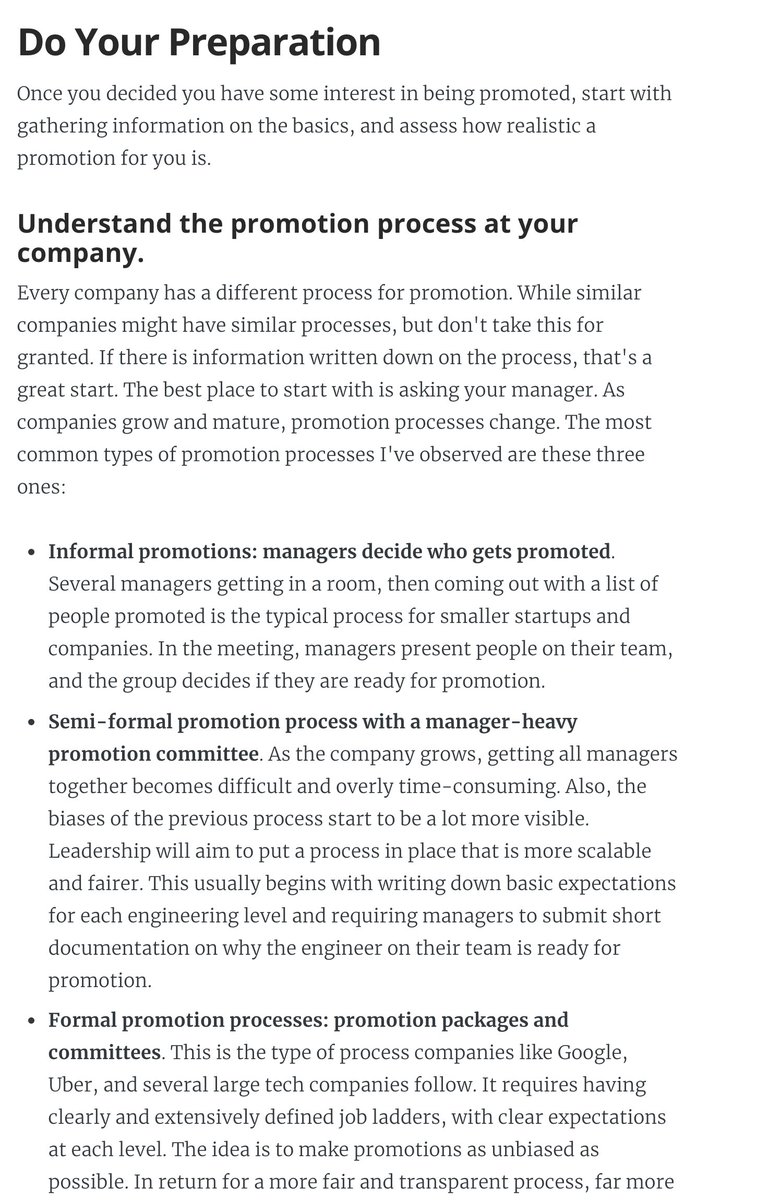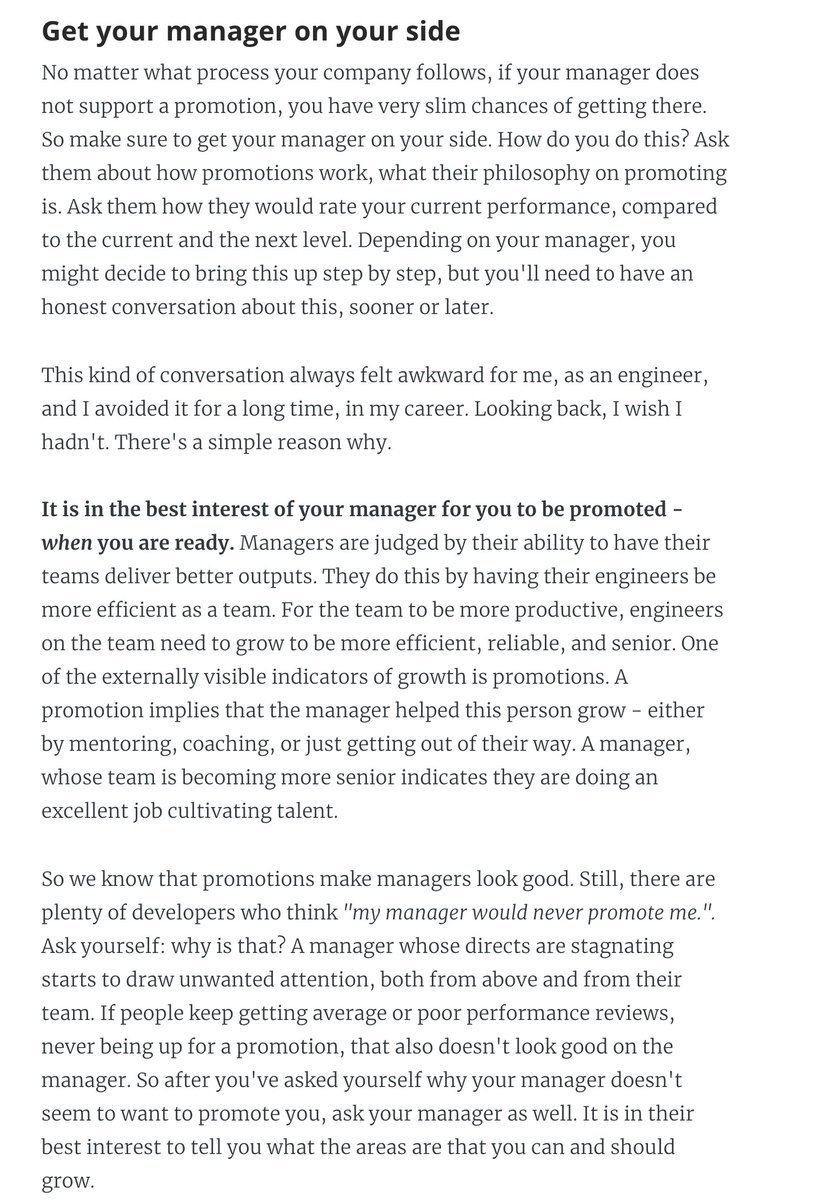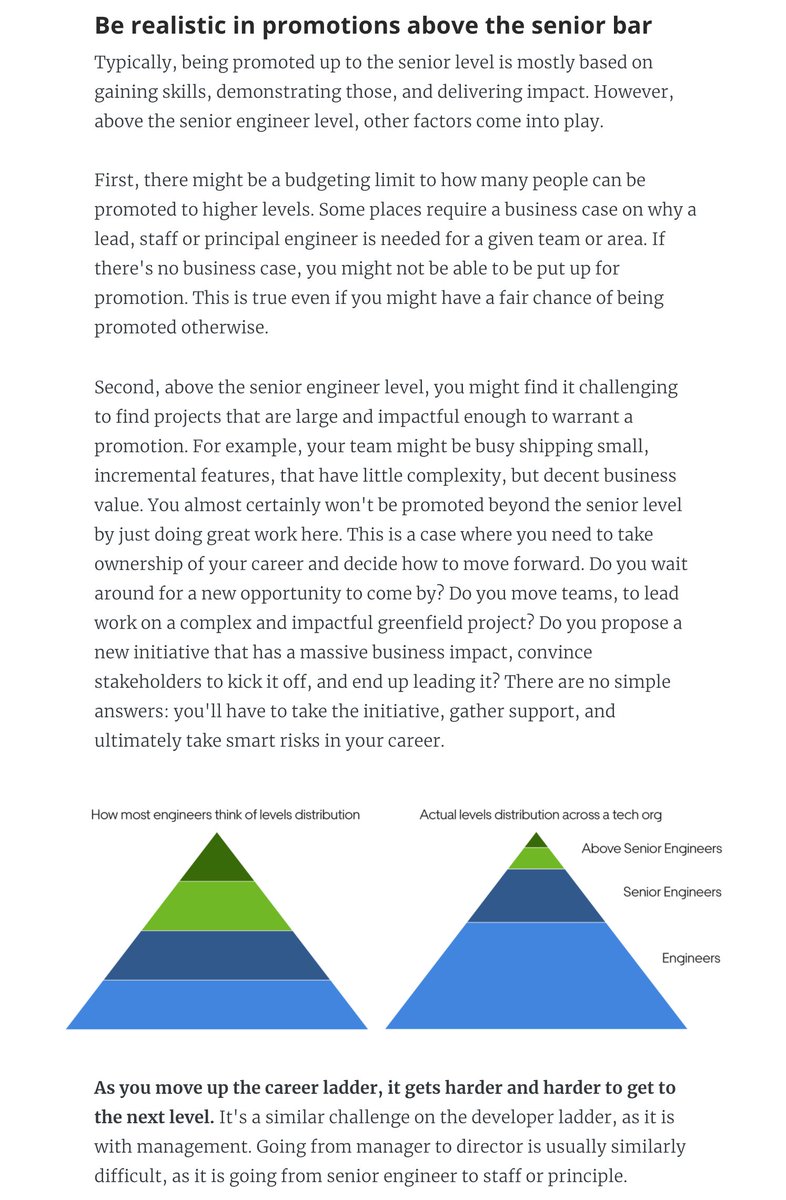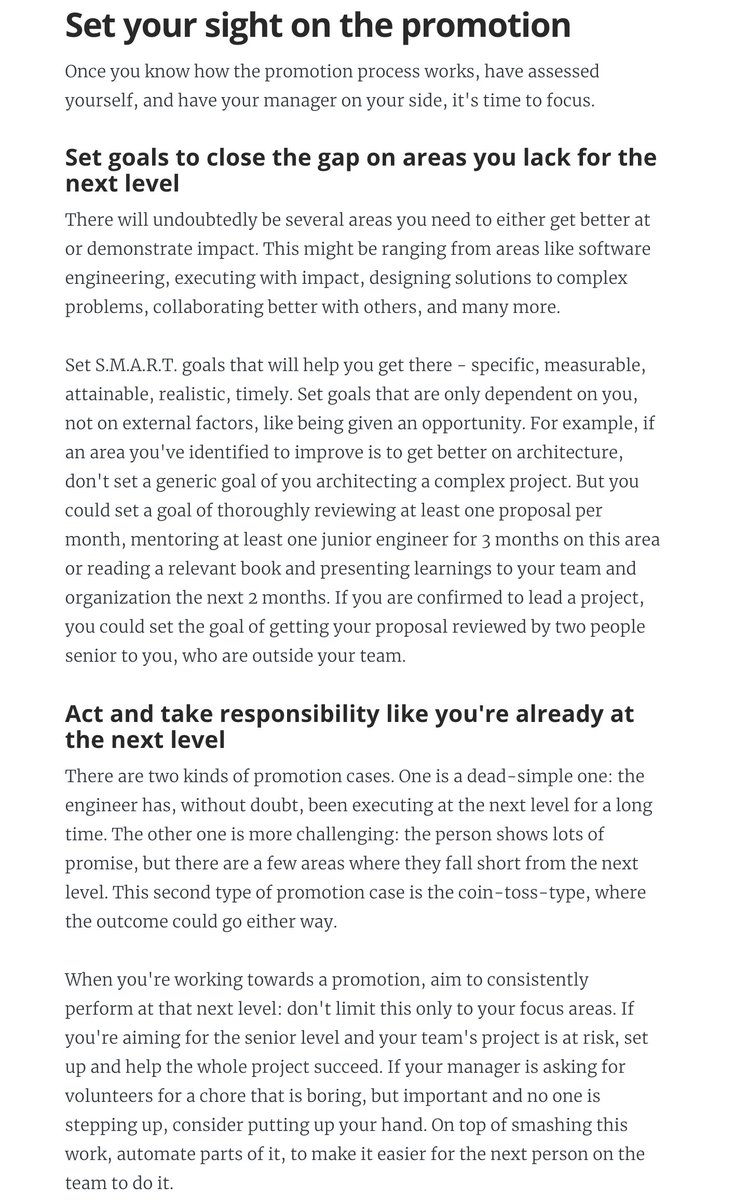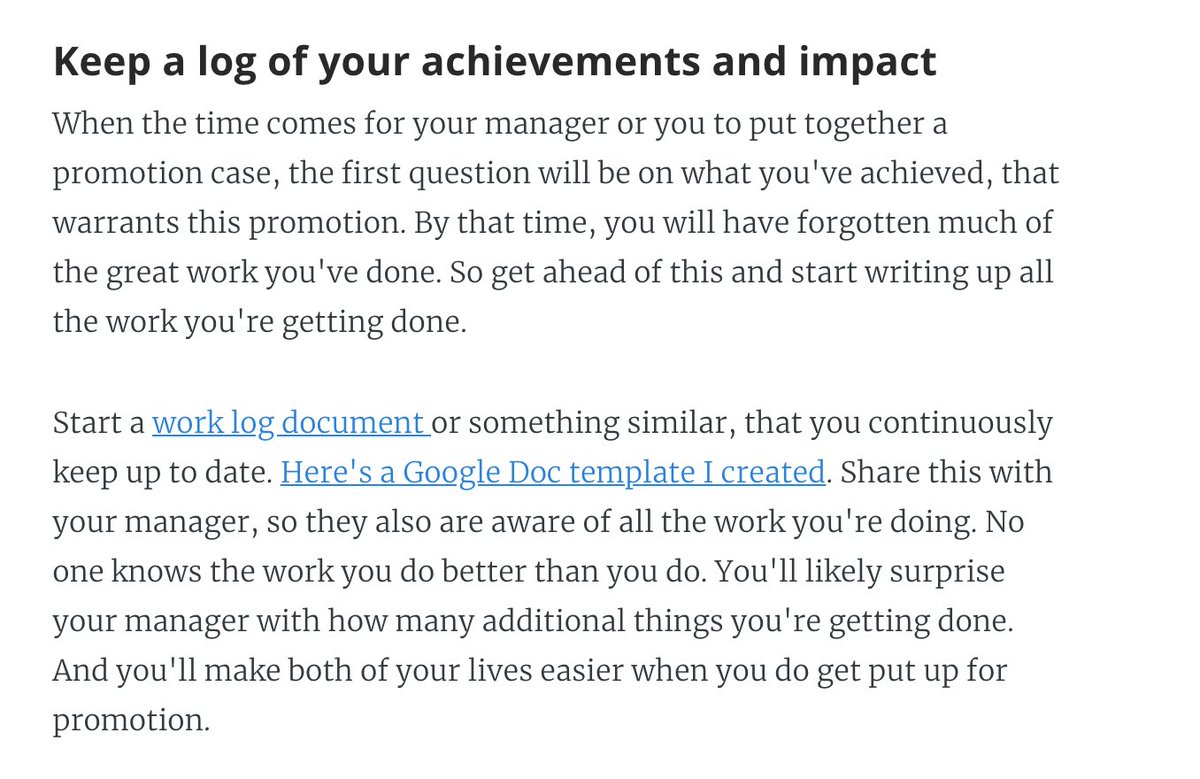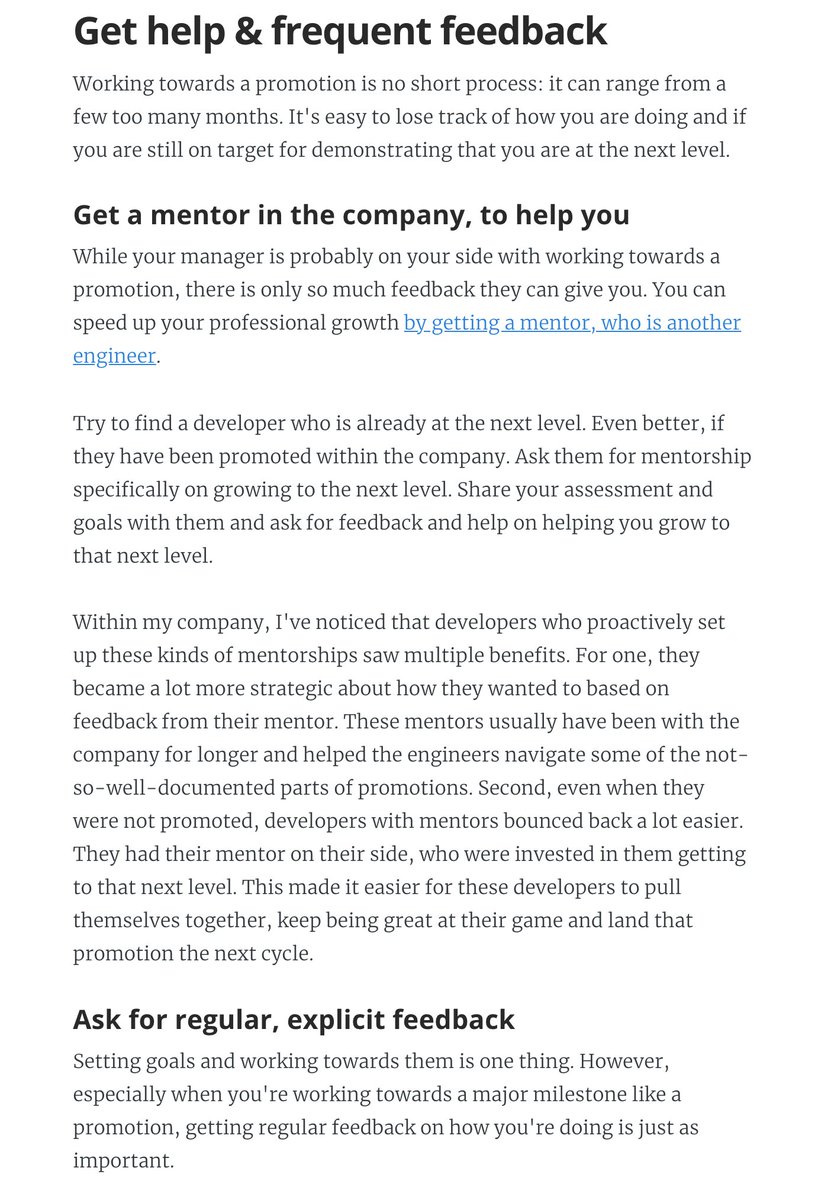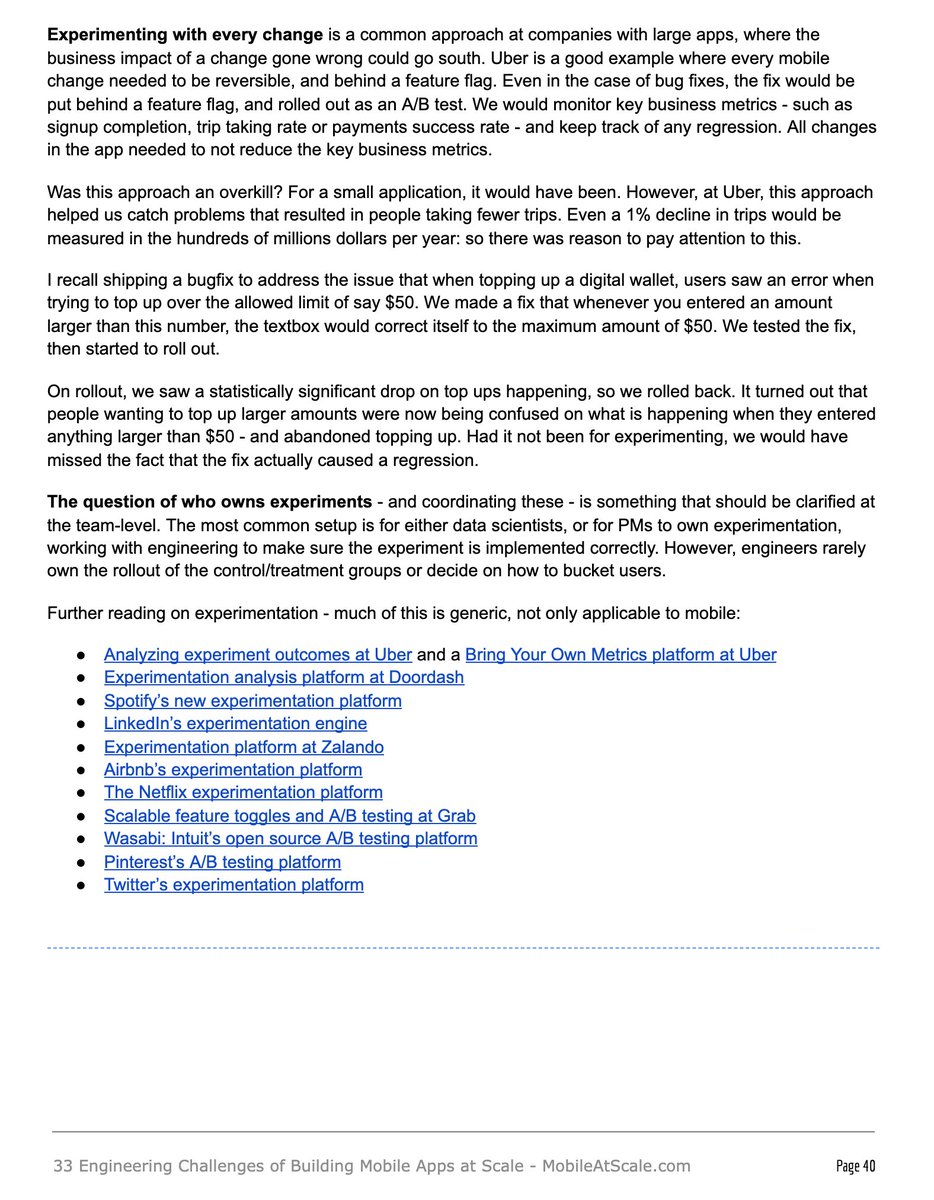
The 12 most important pieces of information and concepts I wish I knew about equity, as a software engineer.
A thread.
1. Equity is something Big Tech and high-growth companies award to software engineers at all levels. The more senior you are, the bigger the ratio can be:

A thread.
1. Equity is something Big Tech and high-growth companies award to software engineers at all levels. The more senior you are, the bigger the ratio can be:

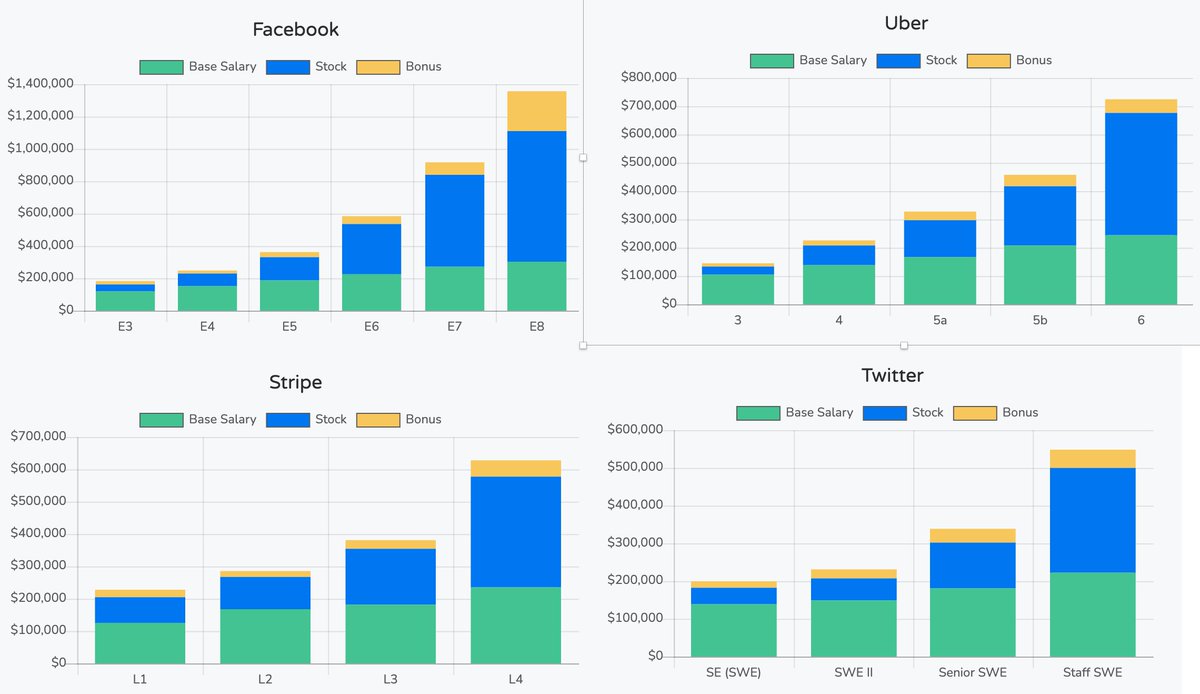
2. Vesting, cliffs, refreshers, and sign-on clawbacks.
If you get awarded equity, you'll want to understand vesting and cliffs. A 1-year cliff is pretty common in most places that award equity.
Read more in this blog post I wrote: blog.pragmaticengineer.com/equity-for-sof…
If you get awarded equity, you'll want to understand vesting and cliffs. A 1-year cliff is pretty common in most places that award equity.
Read more in this blog post I wrote: blog.pragmaticengineer.com/equity-for-sof…
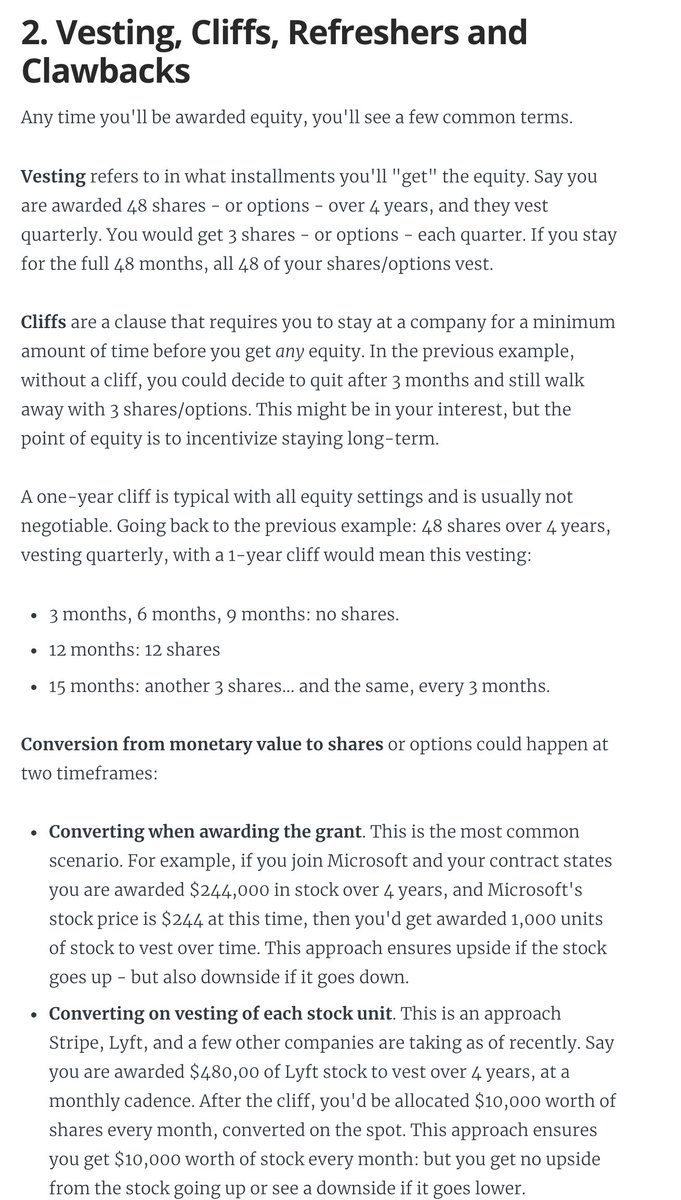
3. Stock options / ESOPs.
The most common form of equity compensation at early-stage startups that are high-growth.
And there are *so* many pitfalls you'll want to be aware of. You need to do your research on this: I can't do justice in a tweet.
blog.pragmaticengineer.com/equity-for-sof…
The most common form of equity compensation at early-stage startups that are high-growth.
And there are *so* many pitfalls you'll want to be aware of. You need to do your research on this: I can't do justice in a tweet.
blog.pragmaticengineer.com/equity-for-sof…
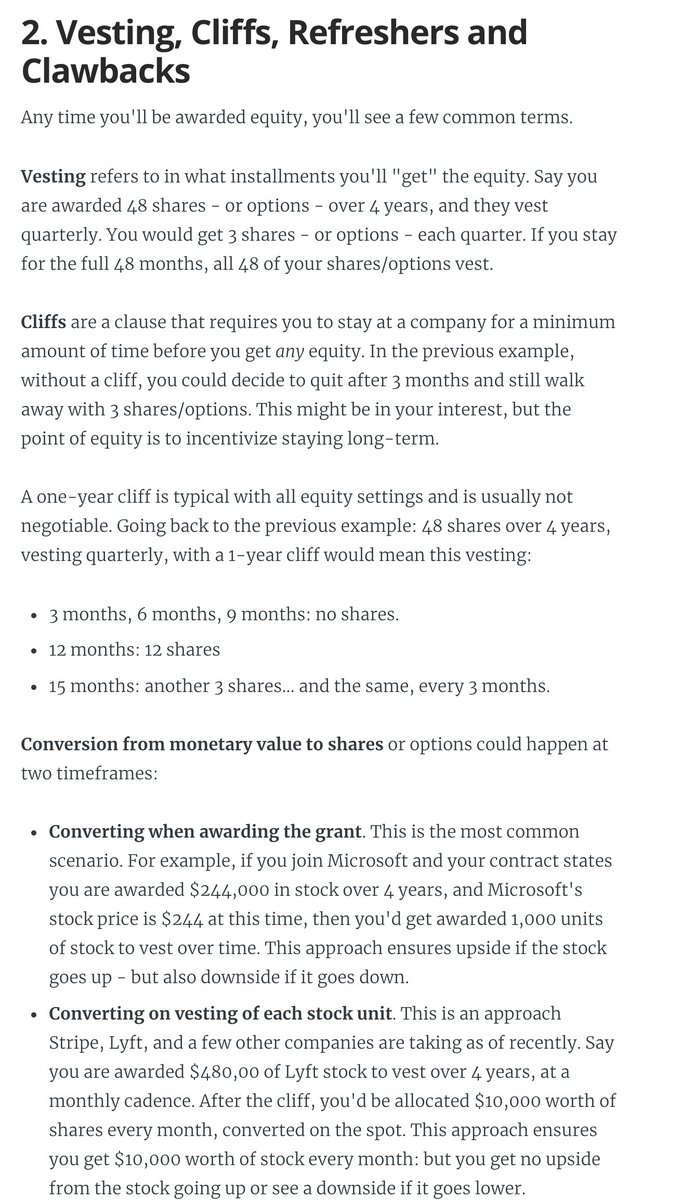
4. RSUs (Restricted Stock Units)
A common form of equity compensation for publicly traded companies and Big Tech. One of the easier types of equity to understand: blog.pragmaticengineer.com/equity-for-sof…
5. Double-trigger RSUs. Typically RSUs for pre-IPO companies. I got these at Uber.

A common form of equity compensation for publicly traded companies and Big Tech. One of the easier types of equity to understand: blog.pragmaticengineer.com/equity-for-sof…
5. Double-trigger RSUs. Typically RSUs for pre-IPO companies. I got these at Uber.
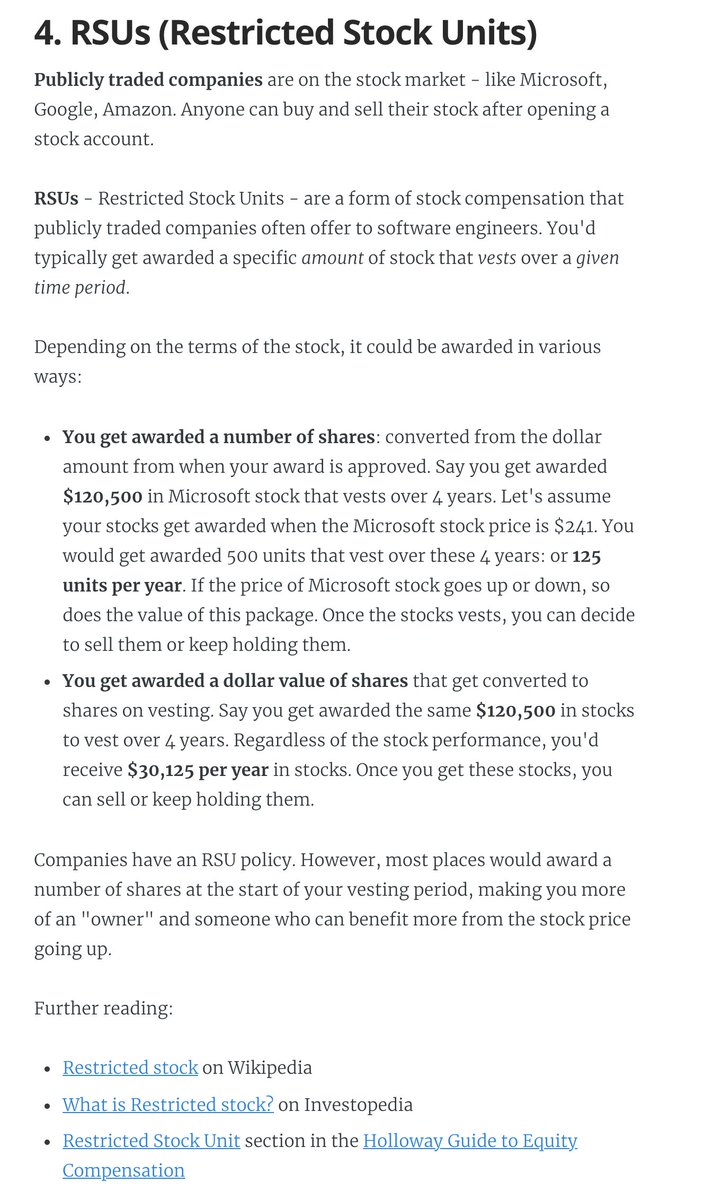
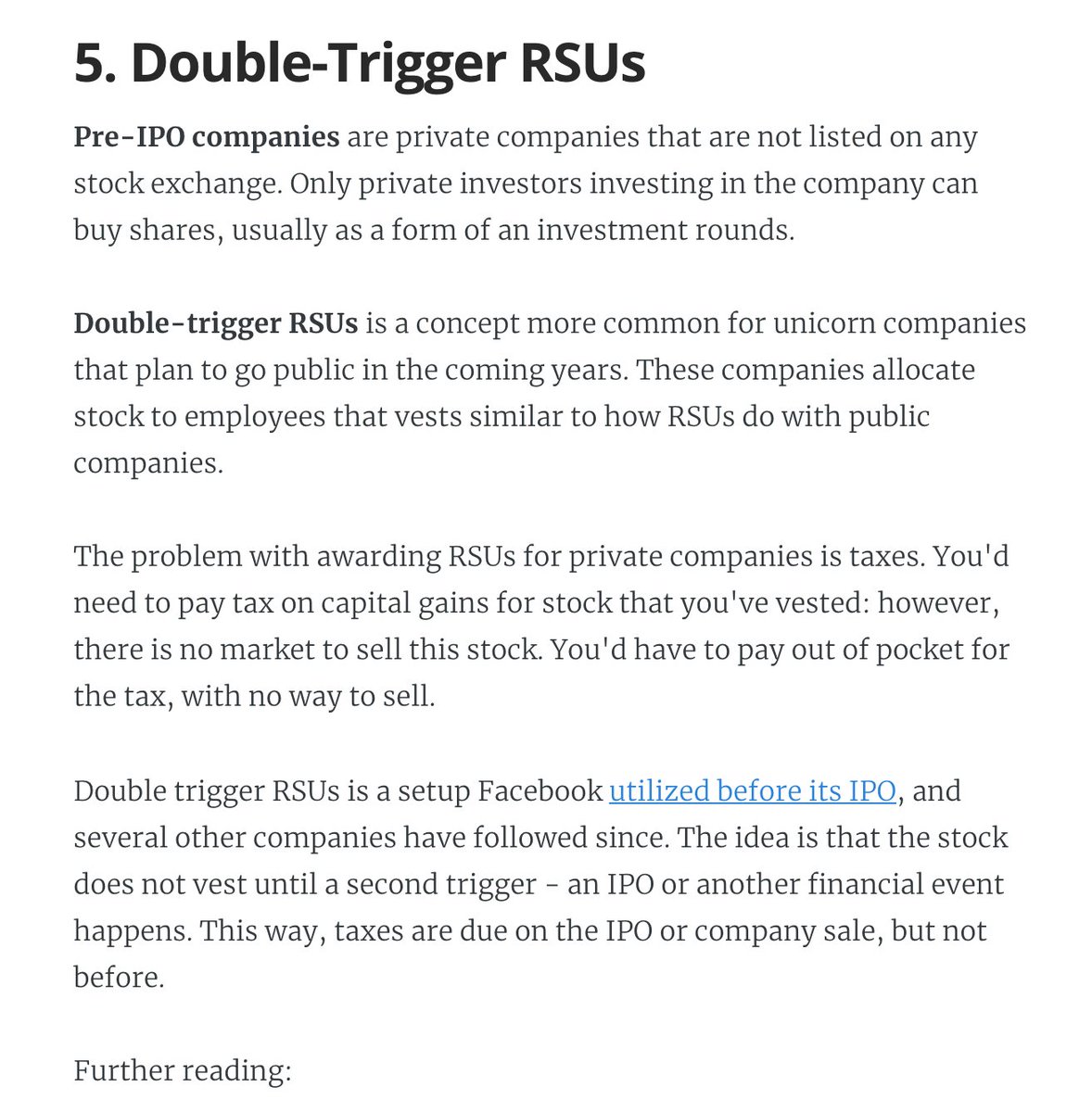
6. ESPP: a (typically) amazing employee perk at publicly traded companies. There's always risk, but this plan can typically offer good upsides.
7. Phantom shares. An interesting setup similar to RSUs... but you don't own stocks. Not frequent, but e.g. Adyen goes with this plan.

7. Phantom shares. An interesting setup similar to RSUs... but you don't own stocks. Not frequent, but e.g. Adyen goes with this plan.
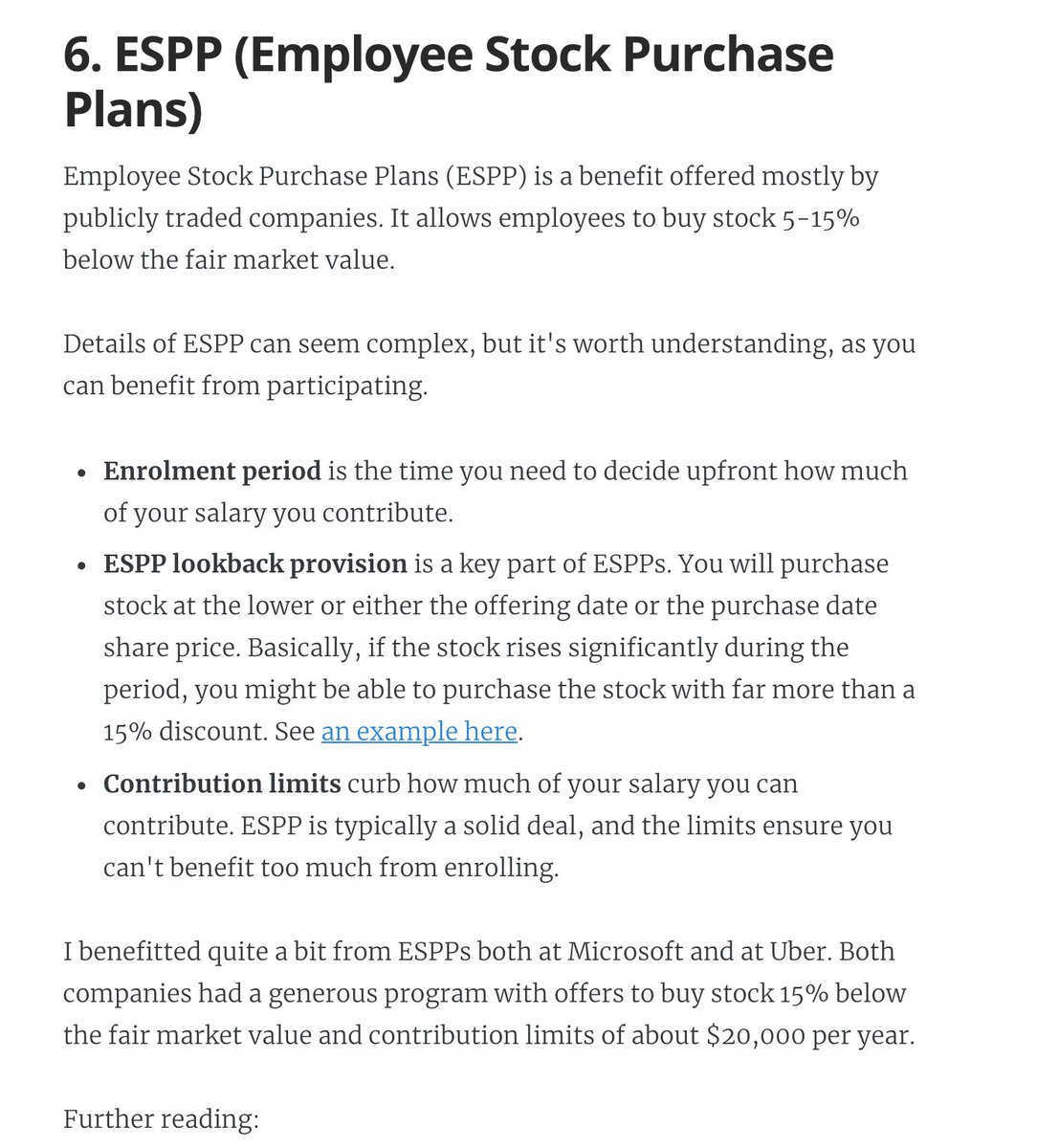
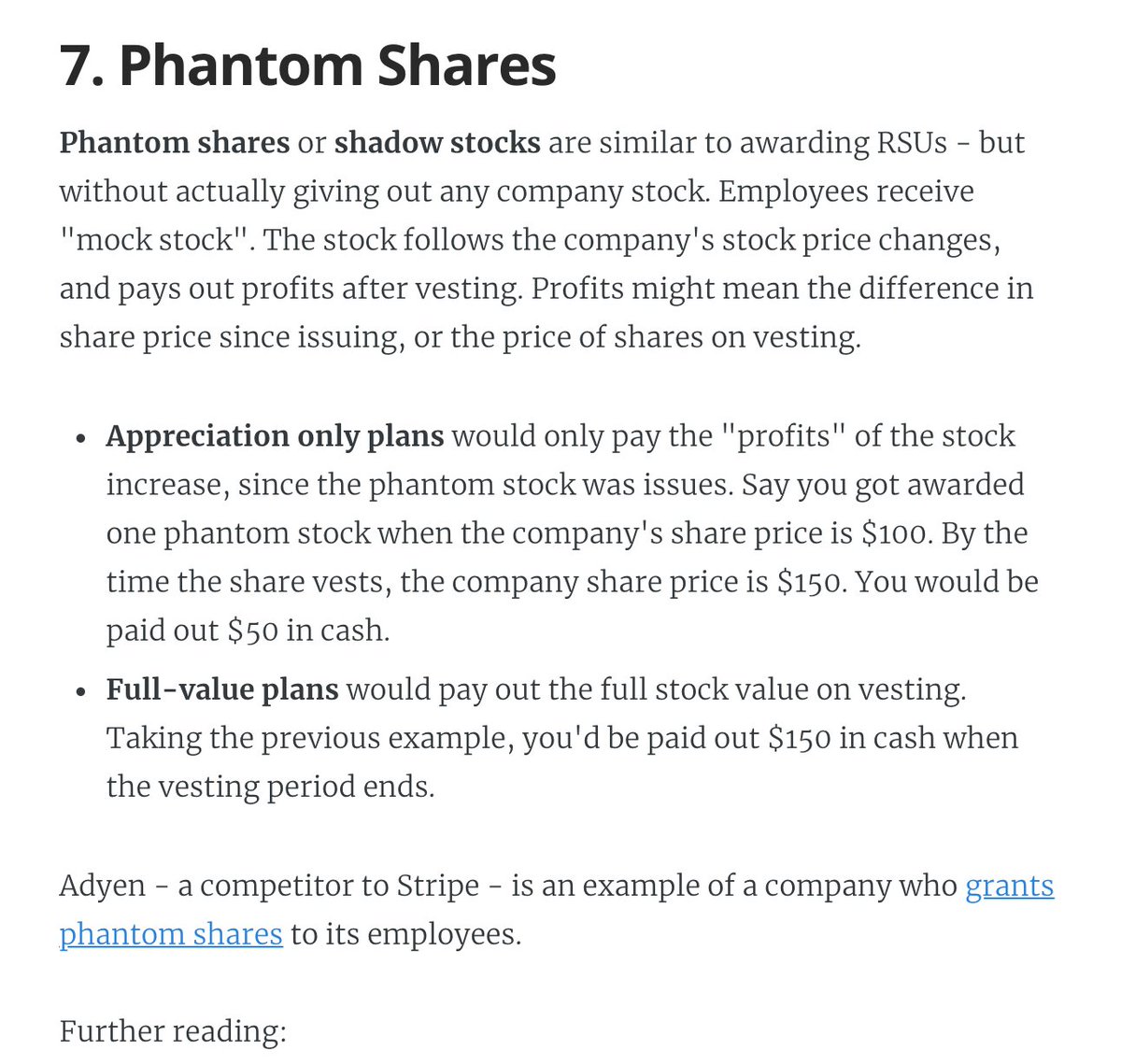
7. SARs - similar to phantom stocks. A few EU tech startups I know of use them.
8. Growth shares. A more exotic equity type. Skyscanner awarded these kinds of shares.
More: blog.pragmaticengineer.com/equity-for-sof…

8. Growth shares. A more exotic equity type. Skyscanner awarded these kinds of shares.
More: blog.pragmaticengineer.com/equity-for-sof…
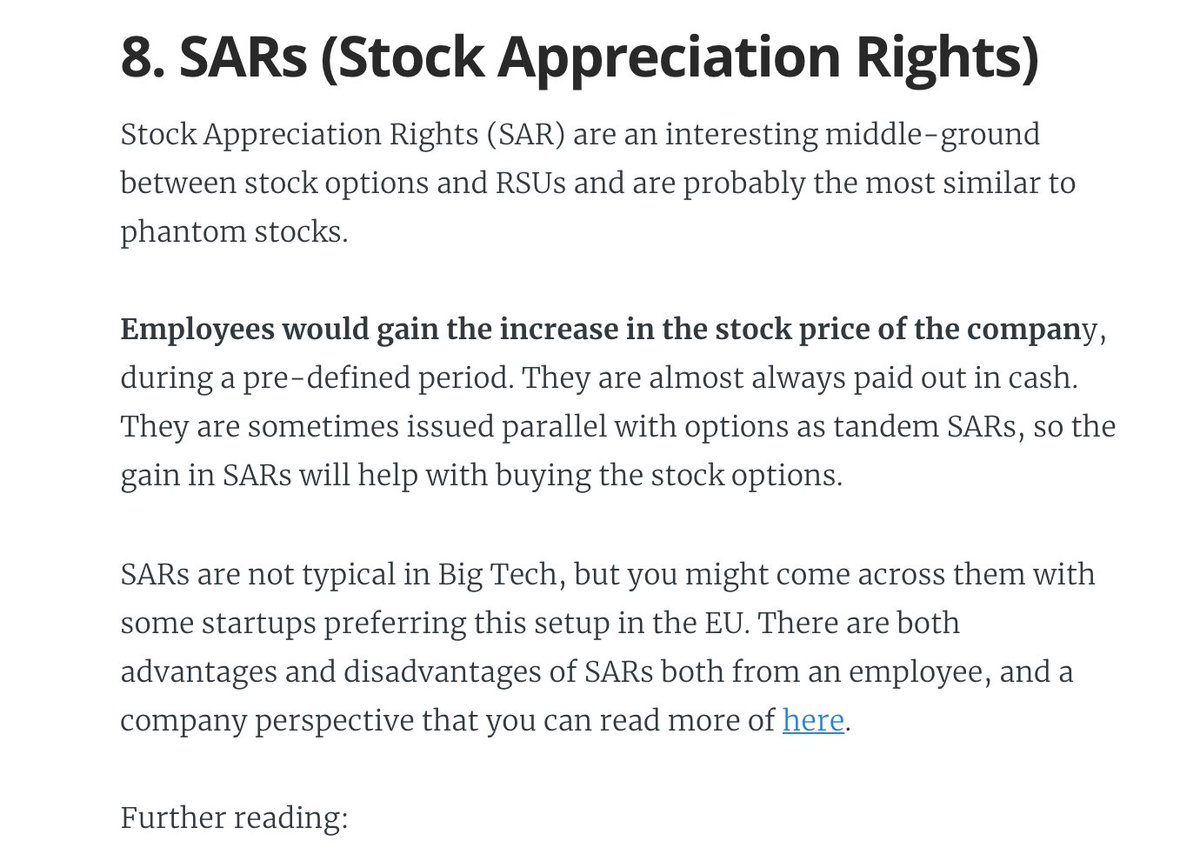
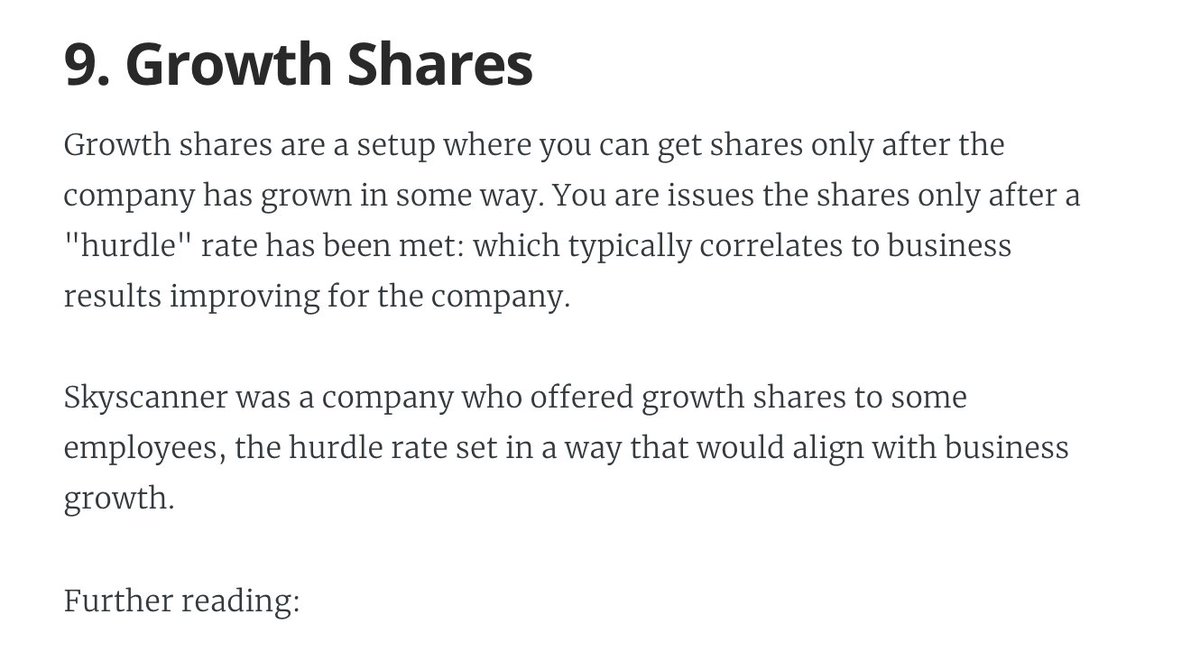
10. Dilution. What is almost certain to happen with options/shares with new fundraising rounds. Not much you can do: but be aware.
11. Taxes. The only certainty with equities is you needing to deal with this. Talk with an expert. This is important.

11. Taxes. The only certainty with equities is you needing to deal with this. Talk with an expert. This is important.

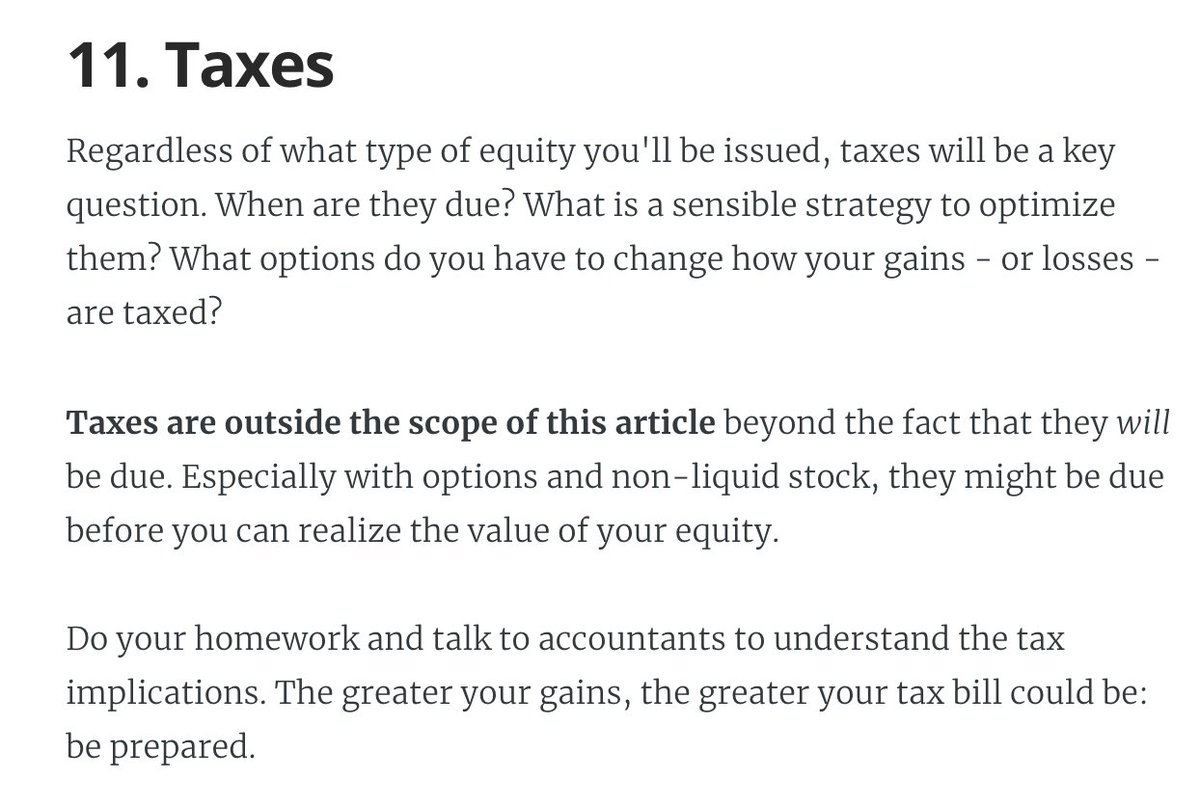
12. Equity carries plenty of risk and you *can* lose money - not just gain.
WeWork. Zenefits. Good Technologies. FanDuel. All cautionary examples.
Until you've cashed in your equity, it can evaporate. Keep this in mind.
Full article: blog.pragmaticengineer.com/equity-for-sof…
And finally:

WeWork. Zenefits. Good Technologies. FanDuel. All cautionary examples.
Until you've cashed in your equity, it can evaporate. Keep this in mind.
Full article: blog.pragmaticengineer.com/equity-for-sof…
And finally:
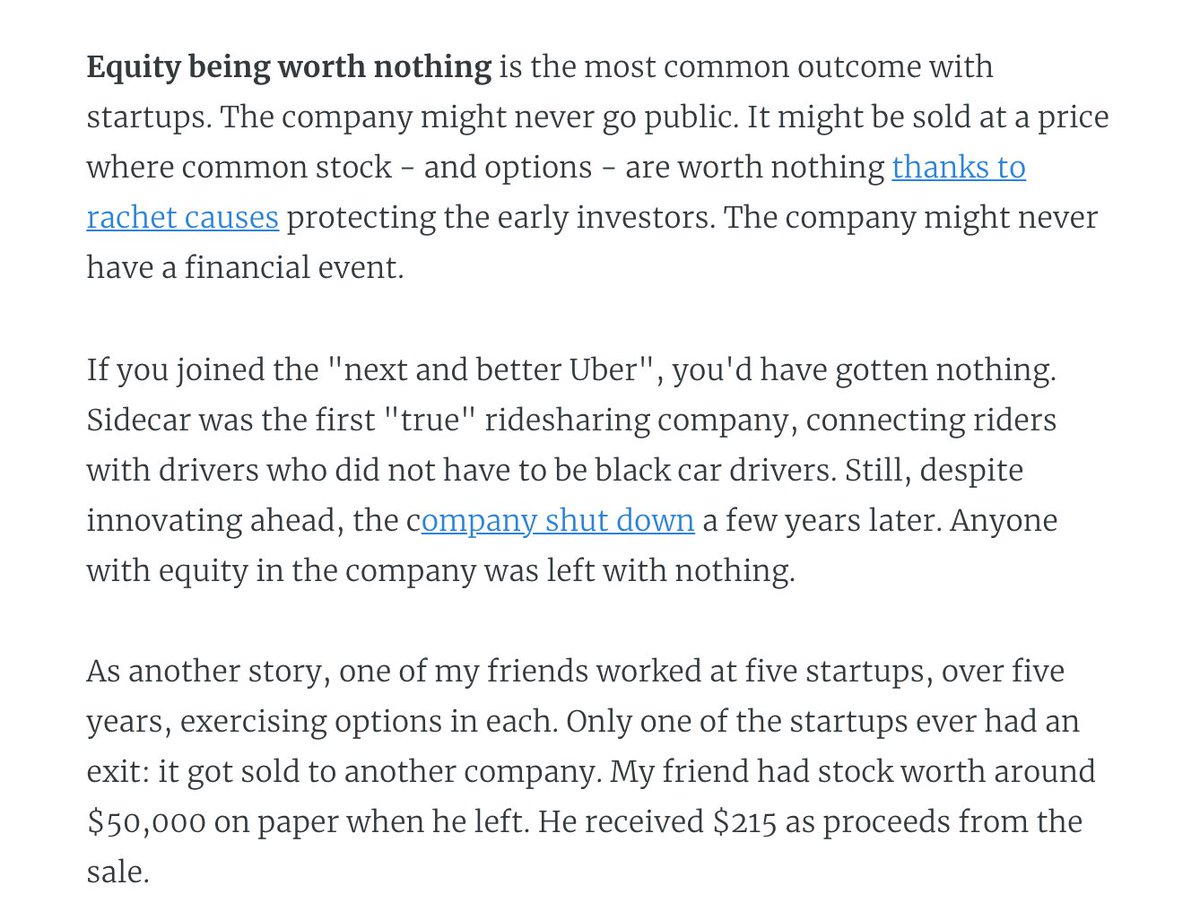
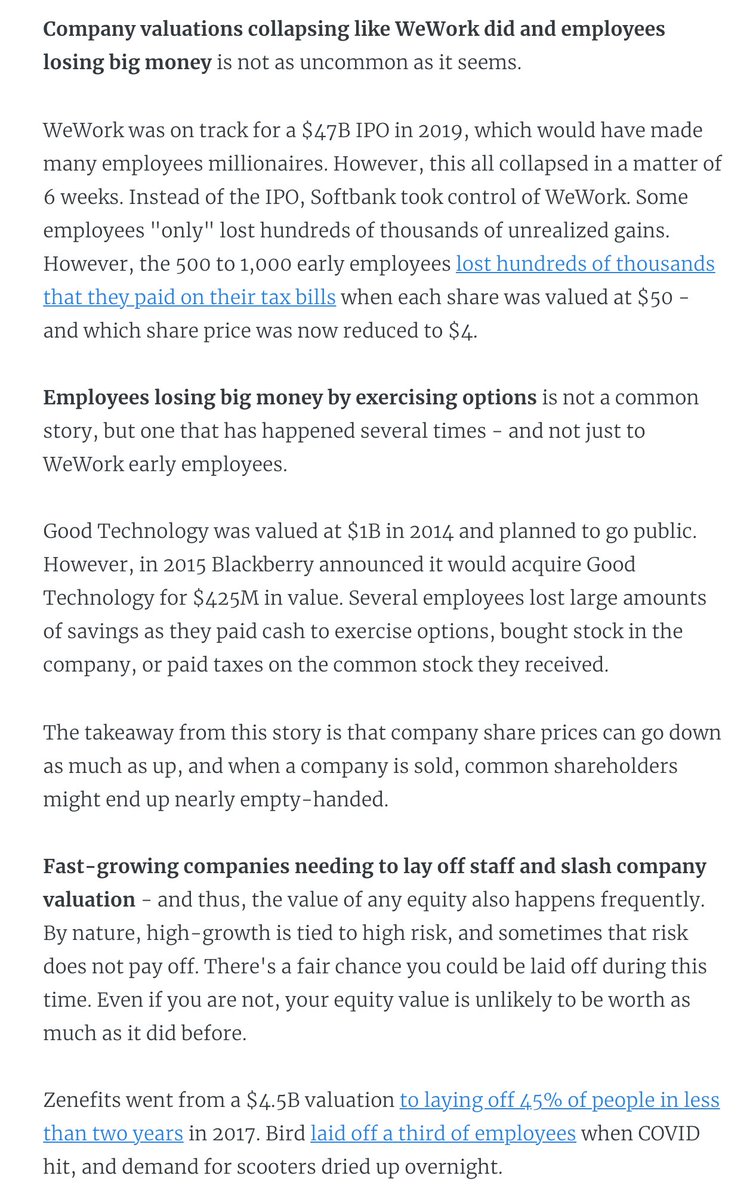
Most companies do not equity for software engineers. Big Tech and high-growth tech startups are ones who typically do.
But how do you get into these places? I don't have the answers, but have a few thoughts I'll send out in email form Subscribe here: blog.pragmaticengineer.com/tech-interview…
But how do you get into these places? I don't have the answers, but have a few thoughts I'll send out in email form Subscribe here: blog.pragmaticengineer.com/tech-interview…
• • •
Missing some Tweet in this thread? You can try to
force a refresh



